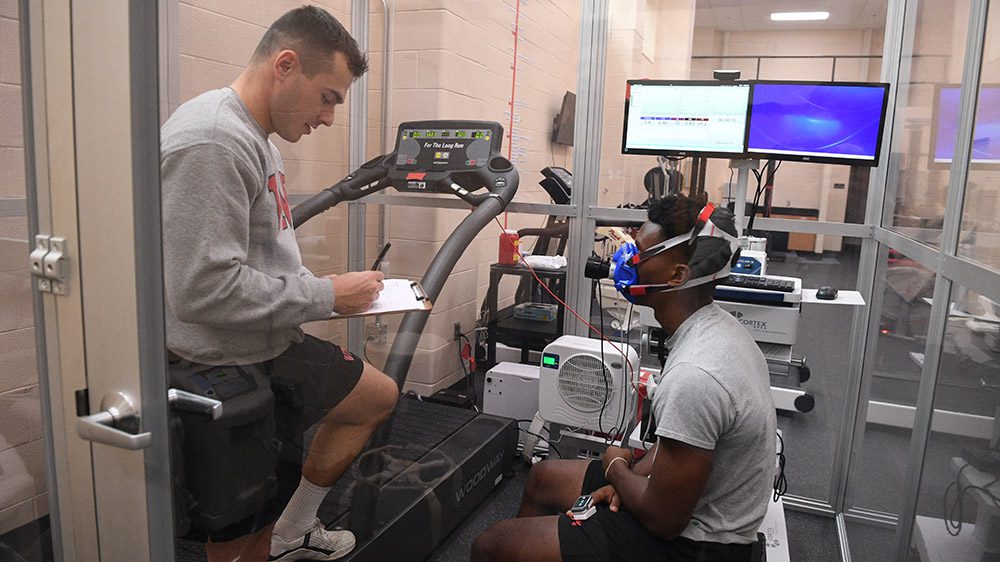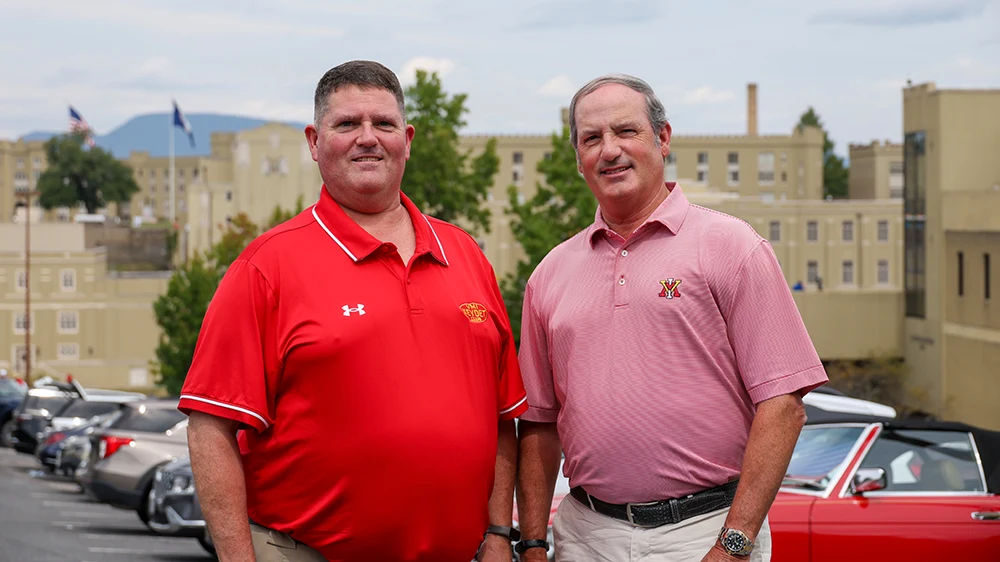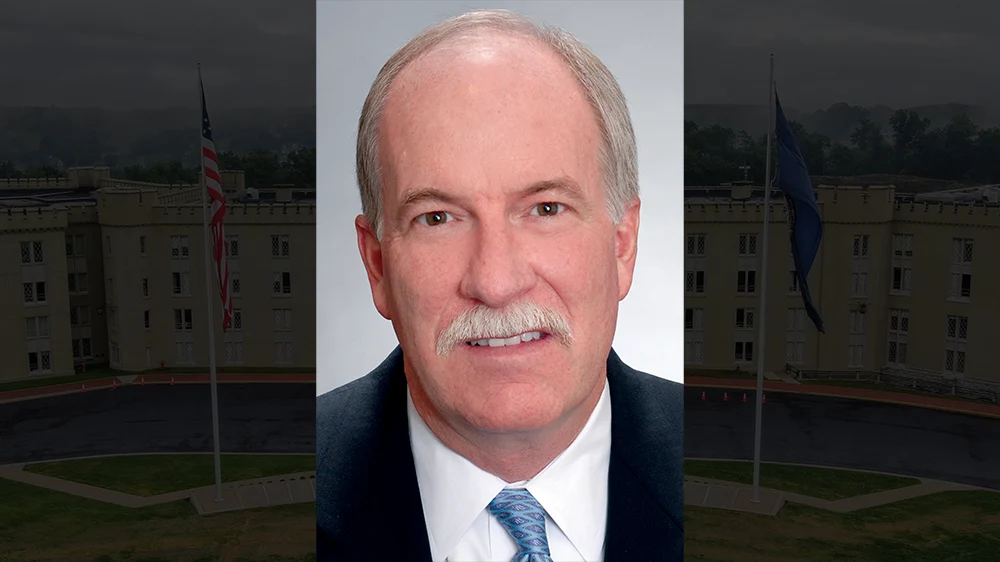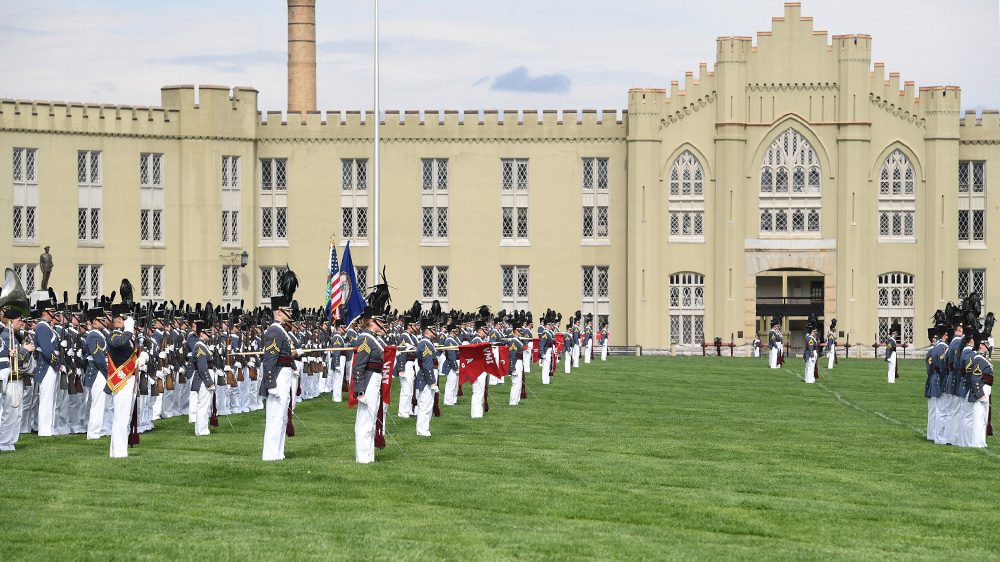Over the past few years, SURI projects have spanned the gamut from studying why women get involved in terrorist cells to determining what factors help migrants to Europe integrate well into their new homes. In the science labs, cadets have undertaken projects relating to sustainable fuels under the guidance of Lt. Col. Dan Harrison ’05, Ph.D., associate professor of chemistry, and studied the effects of early environmental exposures on rat brains with mentorship from Maj. Molly Kent, Ph.D., assistant professor of biology.
Sometimes, a SURI cadet uses their Jackson-Hope funding to venture far afield—much farther afield than anyone might imagine. In the summer of 2019, Cameron McNeil ’20 traveled to Zimbabwe, formerly known as Rhodesia, to interview veterans of that nation’s civil war in preparation for writing his Institute Honors thesis, “A Zimbabwean Society Forged by War.”
The next spring, McNeil was the recipient of the Wilbur S. Hinman Jr. ’26 Research Award in the arts and humanities, which recognizes superior research performance by cadets. In his nomination of McNeil, Col. Mark F. Wilkinson, Ph.D., then-head of the history department, noted that McNeil was “operating at the graduate student level, not the undergraduate,” having already given multiple presentations at conferences aimed at professional historians and scholars of African studies.
A sub-program of SURI, the Applied and Industrial Mathematics program, also runs in the summer under the guidance of Col. John A. David, Ph.D., professor of applied mathematics. Cadets in the AIM program use their mathematical and data analysis skills to help solve a real-world problem for an area business or nonprofit agency, and their work culminates with both an oral presentation and a written report to leaders of that organization.
Of course, independent research is not confined to the summer months, nor is funding.
Each April, many cadets present their research at the Undergraduate Research Symposium. At the URS, cadets present posters showing research highlights while interested faculty members and fellow cadets walk by and ask questions. This year, there were approximately 75 cadet presenters from a wide variety of academic disciplines.
And one VMI invention with Jackson-Hope funding is on the cusp of being commercialized. The tick rover, which was developed by Col. Jim Squire, Ph.D., professor of electrical engineering, and Col. Jay Sullivan, Ph.D., professor of mechanical engineering, is now in the process of being brought to market. The device, which was invented to slow the spread of Lyme disease and other parasitic illnesses, is a robot that combs through grass, picks up ticks, and kills them. Over the past 15 years, dozens of cadets have contributed to the tick rover’s success, taking part in everything from conceptual planning to field testing to fine-tuning the device’s ability to stay within set boundaries.
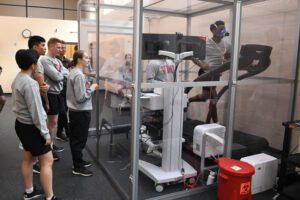
This past fall, another Jackson-Hope-funded project got underway in the lab of Maj. Dan Baur, Ph.D., assistant professor of physical education. Baur, who teaches courses for the exercise science minor, used a Jackson-Hope grant to purchase an altitude chamber, which simulates the effect of the low oxygen found at high altitudes. He’s now using it in his military physiology course to study the effects of carrying heavy loads, as soldiers often do, at high altitudes.
Getting nearly $100,000 of funding for the equipment to carry out such an initiative is “nearly unheard of” at a school as small as VMI, Baur noted. “If you need equipment in a given year, we can almost certainly get it. … We’re providing cadets with something that’s unique, maybe, in the country.”
Cadet Andrew Broecker ’22, a biology major and exercise science minor, took Baur’s exercise physiology course in the fall and has been working with Baur in the lab this spring. What’s more, he’s experienced the altitude chamber firsthand.
“It’s pretty brutal,” he commented, “but it’s definitely interesting to see how the altitude affects your body and how you adapt to it.”
Broecker is commissioning into the Army, but he hopes to pursue his interests in physiology by attending graduate school down the road, and he’s currently working on an Institute Honors thesis measuring internal versus external motivation to stay on a pullup bar.
Earlier in his cadetship, Broecker did a SURI project with Col. Anne Alerding, Ph.D., professor of biology, learning about what factors influence the growth of soybeans. In less than four years, he’s done things he couldn’t have imagined when he was graduating from high school in his native Indiana.
“Coming to VMI, I honestly didn’t know much about the academic side of things, especially with the biology and exercise science department, but it’s definitely been a blessing. It’s definitely opened my eyes and it’s been awesome to really fulfill and reach my potential because of all the tools that I’ve been given.”
On a broader scale, cadets from a wide variety of academic disciplines regularly travel to conferences such as the Southern Conference Undergraduate Research Forum to present their research to a wider audience and learn from peers. In fall 2021, 11 cadets and two faculty members made the trip to Spartanburg, South Carolina, to present at SURF.
Jackson-Hope funding is also a boon to the Institute’s faculty members. Jackson-Hope New Direction and Research Grants allow faculty to purchase equipment, redesign curricula, and keep up with cutting-edge research within their disciplines. Today, the fund provides more than 75% of the funds that the Institute commits to faculty development.
Thanks to the fund’s support, VMI faculty have developed e-textbooks for cadet use, studied the potential use of lasers for broadband signaling, and established a structures testing laboratory in the Department of Civil and Environmental Engineering, among many other endeavors.
In addition to this, the Jackson-Hope Fund supports five chaired faculty positions, one in each of the Institute’s five divisions: Humanities, social sciences, life sciences, natural sciences, and engineering. The funds that would otherwise be spent on those faculty members’ salaries are reallocated across the entire faculty, providing a salary boost that would otherwise not be possible. Thanks to Jackson-Hope funding and other private support, approximately 16% of each faculty member’s salary now comes from private funds.
“For the VMI academic program, the Jackson-Hope Fund is truly transformational,” said Brig. Gen. Robert “Bob” Moreschi, Ph.D., deputy superintendent for academics and dean of the faculty. “From chaired faculty positions to faculty and cadet development, in 20-plus years, the Fund has provided more than $20 million in total academic support. Without the vision and generosity of alumni and friends, academics at VMI would simply not be able to maintain its level of excellence, year in and year out.”
